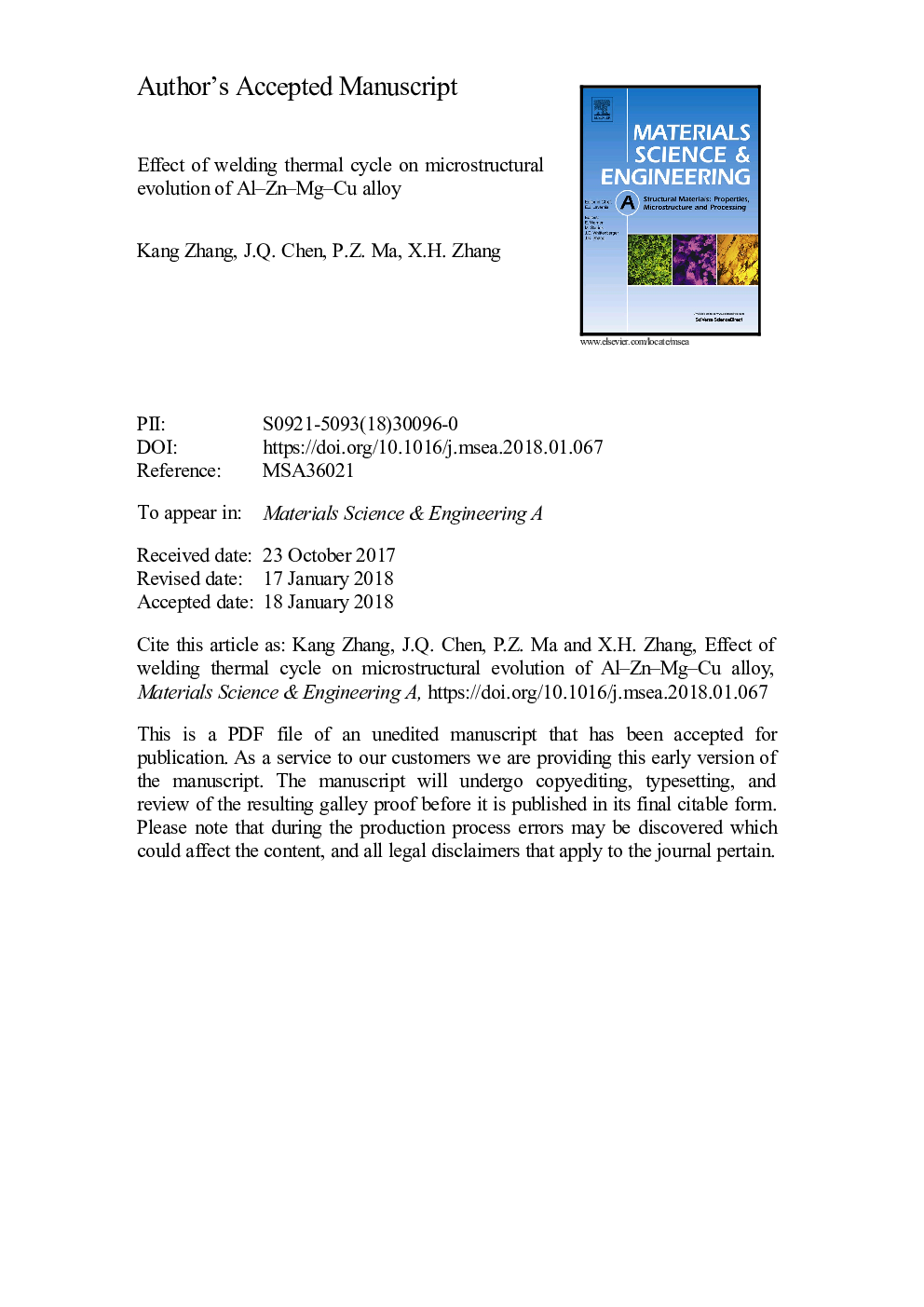| Article ID | Journal | Published Year | Pages | File Type |
|---|---|---|---|---|
| 7973376 | Materials Science and Engineering: A | 2018 | 17 Pages |
Abstract
Al-Zn-Mg-Cu alloys are used extensively in high-speed train applications; however, the occurrence of softening in the heat-affected zone after welding limits their development. In this work, the effect of the welding thermal cycle on the softening and aging behaviors of a 7xxx aluminum alloy was investigated by examining the state of the strengthening precipitates. The microstructure and solvus temperature range of the precipitates of 7N01P-T4 were characterized using TEM and DSC analysis, respectively. It was found that the softening behavior of the aluminum alloys was closely related to the volume fraction and size of the hardening precipitates, which were greatly affected by the peak temperature of the welding thermal cycle. In addition, ηⲠand η precipitates were observed to be primarily responsible for the increase in the mechanical and electrical properties during the room-temperature natural aging. A phenomenological connection was thus uncovered between the characteristic parameters of the thermal cycle and the precipitation behavior, providing insight for the design of the welding process for 7N01 alloys.
Related Topics
Physical Sciences and Engineering
Materials Science
Materials Science (General)
Authors
Kang Zhang, J.Q. Chen, P.Z. Ma, X.H. Zhang,
